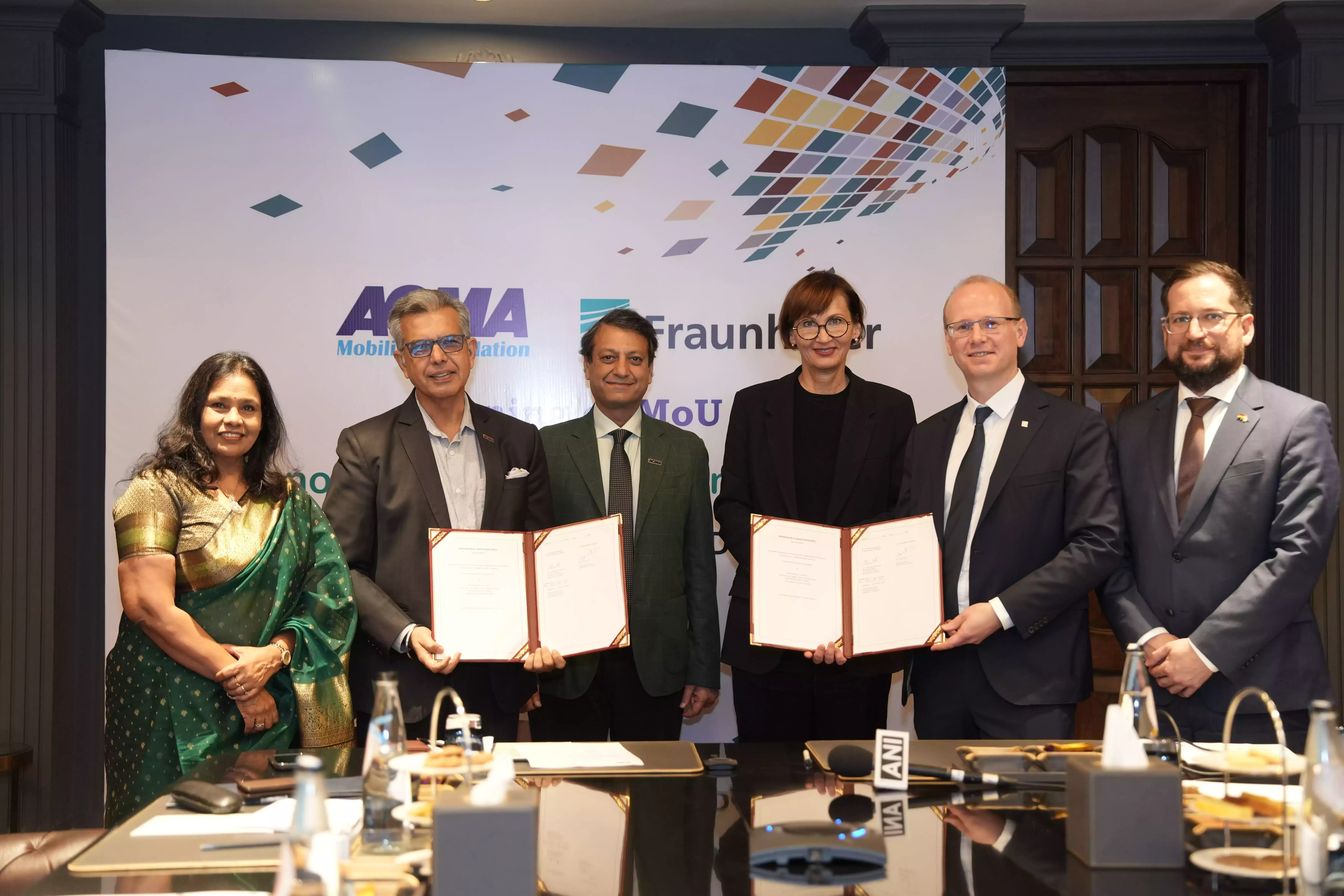 This collaboration is expected to enhance technology and trade relations between India and Germany.
This collaboration is expected to enhance technology and trade relations between India and Germany. The ACMA Mobility Foundation (AMF) has entered into a Memorandum of Understanding (MoU) with Germany's Fraunhofer-Gesellschaft to support research and development (R&D) in India's auto component industry. This partnership, presented at the 18th Asia-Pacific Conference of German Business (APK 2024) in New Delhi, aims to tackle the challenges of carbon neutrality, circularity, safety, and the environment in the mobility industry. By leveraging their expertise, AMF and Fraunhofer intend to drive technological, sustainable, and product innovations in the Indian automotive sector.
A boost towards technological development in auto component sector
Fraunhofer Institutes will collaborate with AMF on applied research projects that focus on new product development, process innovations, and competitive R&D for India's auto components sector. Fraunhofer’s technical experts will work with Indian automotive companies to enhance process technologies and incorporate sustainable production methods. Additionally, joint projects centered on sustainable production and road safety will be explored, emphasising circular economy principles and pre-competitive technologies applicable throughout the automotive sector.
Vikrampati Singhania, Director of AMF and MD of JK Fenner (India), highlighted the significance of this partnership. “This is a significant milestone for the Indian auto component industry. Collaborating with Fraunhofer, a world leader in applied research, will strengthen our efforts to drive innovation, enhance product quality, and accelerate the transition to sustainable mobility solutions. This partnership underscores our commitment to shaping a future-ready automotive industry in India.”
Vinnie Mehta, Director and Secretary of AMF, emphasised the collaboration's role in elevating the R&D capabilities of India’s auto component industry. “This partnership will enable Indian companies to tap into Fraunhofer’s vast expertise and experience in applied research, helping them meet global standards while fostering innovation at a competitive cost.”
Fraunhofer-Gesellschaft
Fraunhofer-Gesellschaft, which operates 76 research institutes and receives over 3.4 billion euros in annual research funding, will extend its Traffic and Transportation Alliance’s capabilities to this partnership. This alliance, consisting of 18 institutes, will offer specialised research and development services to India's automotive ecosystem.
Dr. Johann Feckl, Director and Section Head of Precompetitive Research and International Relations at Fraunhofer HQ, elaborated on the strengths and capabilities of the Fraunhofer Institutes.
“India and Germany are strong and natural partners in Mobility. Fraunhofer possesses excellent strengths in applied research around the entire value chain of Mobility from materials to manufacturing and even mobility concepts and India’s strengths are in manufacturing and qualified manpower. We are delighted that on the occasion of the Intergovernmental consultations, we are concluding this very important partnership with ACMA. We look forward to strengthening our long-standing partnership.”
This collaboration is expected to enhance technology and trade relations between India and Germany while creating a pool of skilled researchers and technical experts familiar with global best practices. The MOU will last for an initial period of three years, with the possibility of extensions based on mutual agreement.
Anandi Iyer, Director of the Fraunhofer Office India, underscored the long-standing relationship between Fraunhofer and India.
“Fraunhofer works closely with the industry to crunch the innovation cycle and bring new processes and products faster to the market. We are already working very strongly with the Indian automotive industry since the last 16 years with ACMA as a valued partner. It will be exciting to bring the German and Indian industry to work on India-specific challenges, create proof of concepts and then scale it at a much faster pace, thus combining German engineering and Indian ingenuity for a win-win alliance.”
